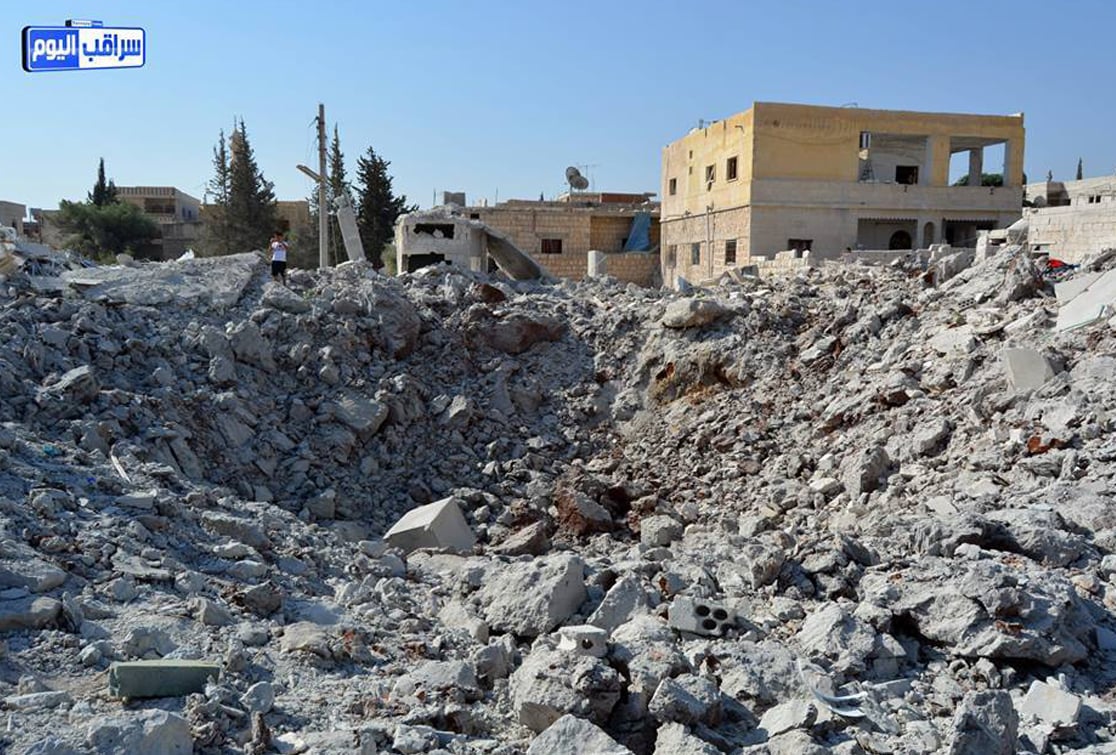1715 Barrel Bombs Killed 103 Individuals, including 23 Children and 13 Women

I- Introduction:
By daily observing and recording violations, after the beginning of the popular protests in March 2011, we found out that first significant use of barrel bombs by government forces (Military forces, security forces, local militias, and foreign Shiite militias) was on Monday 1 October, 2012 in Idlib – Silqean town where a helicopter dropped a barrel bomb on a two-floor residential building which collapsed completely and 32 civilians, including seven women and seven children, were killed in addition to 120 others who were injured as shrapnel scattered everywhere.
It is worth noting that this might not be the first time barrel bombs were used but it was the first time it was used in such a notable manner. The international community was not familiar with that kind of weapon yet. Barrel bombs sometimes weigh quarter of ton and rely on the free fall principle. These barrels are random weapons and locally made, since it is less expensive, causes massive destruction, and causes a great loss of lives. 99% of the casualties are civilians, where the percentage of targeted women and children ranges between 12 and 35%.
The same as with any new weapon, government forces cautiously waited for the international community’s respond as the Syrian government deems the international community’s silence or condemnation a red light to use and employ this weapon on a larger scale which was the case when it started using aerial weapon, poison gases, cluster munitions, and Scud missiles.
The Security Council waited a year and a half before adopting resolution 2139 on 22 February, 2014 which condemned the use of barrel bombs and mentioned it by name: “Demands that all parties immediately cease all attacks against civilians, as well as the indiscriminate employment of weapons in populated areas, including shelling and aerial bombardment, such as the use of barrel bombs” The Syrians welcomed the resolution because it expressed an intention to take further action in the events of incompliance.


